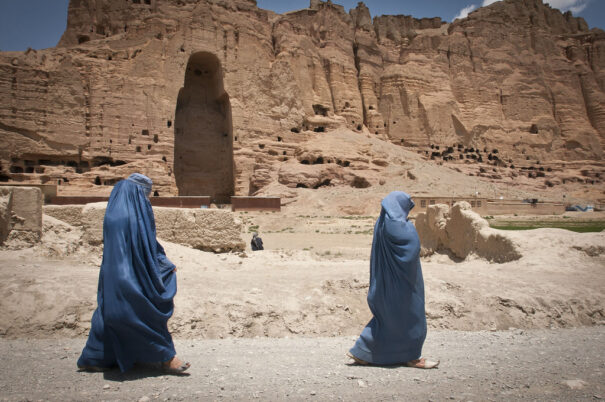
Photo by DVIDSHUB
In a recent event on October 28 hosted by the O’Neill Institute of Georgetown Law, a panel of experts convened to discuss the alarming realities faced by women and girls in conflict zones and beyond. The discussion was moderated by Pema Levy who highlighted a stark report released by the United Nations this month, highlighting that over 600 million women and girls worldwide find themselves forgotten amidst ongoing global crises.
Dr. Samar, an advocate for women’s rights in Afghanistan, opened the discussion by reflecting on the regression of women’s rights under Taliban rule. Despite initial advancements, including Afghanistan’s ratification of the Convention on the Elimination of All Forms of Discrimination Against Women (CEDAW) in 2009, the resurgence of the Taliban has led to significant setbacks. Currently, girls are prohibited from receiving education beyond the sixth grade, impacting approximately 20 million girls in the country. Moreover, the Taliban’s actions have hindered women’s participation in essential healthcare roles, such as vaccination teams, contributing to a resurgence of diseases like polio.
Dr. Mulunda provided insight into the Democratic Republic of the Congo (DRC), a nation grappling with 30 years of conflict and a catastrophic humanitarian situation. With over seven million displaced individuals, the DRC has been labeled the “capital of rape worldwide,” leading to a public health crisis marked by unintended pregnancies and devastating maternal mortality rates. Although recent legislation has begun to allow access to contraception, the infrastructure and resources needed for effective healthcare delivery remain critically inadequate.
Dr. Pardis Mahdavi highlighted the paradoxes embedded in legal frameworks governing women’s rights. In several Gulf countries, laws purportedly designed to protect women have led to severe repercussions, including the incarceration of rape survivors. Additionally, issues such as migrant women facing forced sterilizations and the denial of citizenship to children born from such circumstances illustrate the intersection of law and systemic oppression. The panelists emphasized the urgent need for women to be included in legal reforms that affect their lives, advocating for a stronger presence in decision-making spaces.
Despite the grim realities, the panelists shared a vision of hope and resilience. Dr. Mulunda noted a growing recognition among youth, particularly young women, of their rights and their potential for change. Additionally, social media has emerged as a powerful tool for organizing and raising awareness, empowering the next generation to continue the fight for equality.
Dr. Samar echoed this sentiment, stressing that the struggle for women’s rights is not confined to Afghanistan but is a global issue that transcends borders. She called for increased awareness and advocacy from the international community, urging donors to support human rights initiatives worldwide.
The discussions at the O’Neill Institute underscored the urgent need for global attention and action to address the systemic challenges faced by women and girls in conflict-affected regions. As the panelists articulated, women’s rights are under siege, often used as a battleground for broader political struggles. However, through advocacy, awareness, and the empowerment of future generations, there remains hope for progress in the fight for equality and human rights for all.
